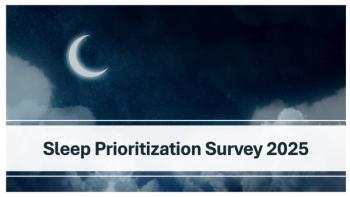
People with Migraines Have Lower Objective, Subjective Sleep Quality Scores, Review Finds
But the meta-analysis leaves open the question whether there is a cause-and-effect relationship between sleep and migraine.
A new review article incorporating both objective and subjective measures of sleep quality appears to confirm a link between low-quality sleep and migraines.
Specifically, they said, there has yet to be a consensus on the question of whether patients with migraines exhibit objective changes to their sleep architecture.
In hopes of bringing clarity to the question, Hoffman and colleagues decided to conduct a meta-analysis, looking for studies that were case-controlled and which used either the objective sleep measure polysomnography, the subjective Pittsburgh Sleep Quality Index (PSQI) measurement, or both. Women who were pregnant, and those with headache disorders, were excluded from the results.
The authors identified a total of 32 studies, most of which (21) used PSQI. All but five were of adults; the 5 studies of children all used polysomnography.
The investigators analyzed the studies in search of answers to three questions: Does sleep quality differ between migraine sufferers and control patients by subjective measures? Does it differ via objective measures? And is there a correlation in adults between subjective sleep quality and migraine disability level?
The answers to the first two questions were the same. People with migraines reported poorer sleep quality on the PSQI measurement and were also found to have lower percentages of rapid eye movement (REM) sleep, which is associated with deeper sleep.
In children measured by polysomnography, total sleep duration was also lower, wake time was increased, and sleep onset latency was shorter.
Hoffman and colleagues said the findings based on the subjective measure were in line with previous research.
“This finding is not surprising; poor sleep is reported as an exacerbating factor for migraines in 50% of cases,” they wrote, “and the effect size was larger in chronic patients, in line with previous research wherein poor sleep is shown to be an important factor in progression to chronic migraine.”
The answer to the third question — whether subjective sleep quality correlated with migraine disability level — was a bit of surprise: the meta-analysis showed there to be no correlation. Hoffman and colleagues said they expected to see a link because earlier research has suggested sleep disturbances correlate with migraine disability status. The investigators wrote that the lack of a correlation in the current review may be due to the relatively small number of studies addressing the issue, and the heterogeneity of the results of those studies. Three of the four studies on the topic found significant positive correlations between the two factors, but the fourth study found a negative correlation.
Although the review seems to affirm the link between sleep and migraine, Hoffman and colleagues cautioned that the association is not necessarily causal one and, moreover, the direction of the causality is uncertain: Does poor sleep have causal role in migraines or might migraines lead to poor sleep. What is clear, though, is that sleep must be an important consideration for physicians treating people with migraines, they said.
“Clinicians should prioritize sleep interventions and consider sleep when prescribing medication,” they wrote. “Indeed, recent studies have demonstrated the utility of sleep interventions in reverting chronic to episodic migraine.”
They added that investigators ought to specifically examine the importance of REM sleep to migraine, and the extent to which its modulation might be meaningful in the treatment of migraines.
“The relationship is likely to be complex and related to sleep homeostasis, rather than related to any absolute proportions of REM sleep, a notion supported by the REM suppressing effects of the best-known migraine preventive, amitriptyline,” they added.
The authors concluded that larger studies will ultimately be needed before the links highlighted in this meta-analysis can be converted into new treatment strategies and techniques.
Newsletter
Get the latest industry news, event updates, and more from Managed healthcare Executive.























